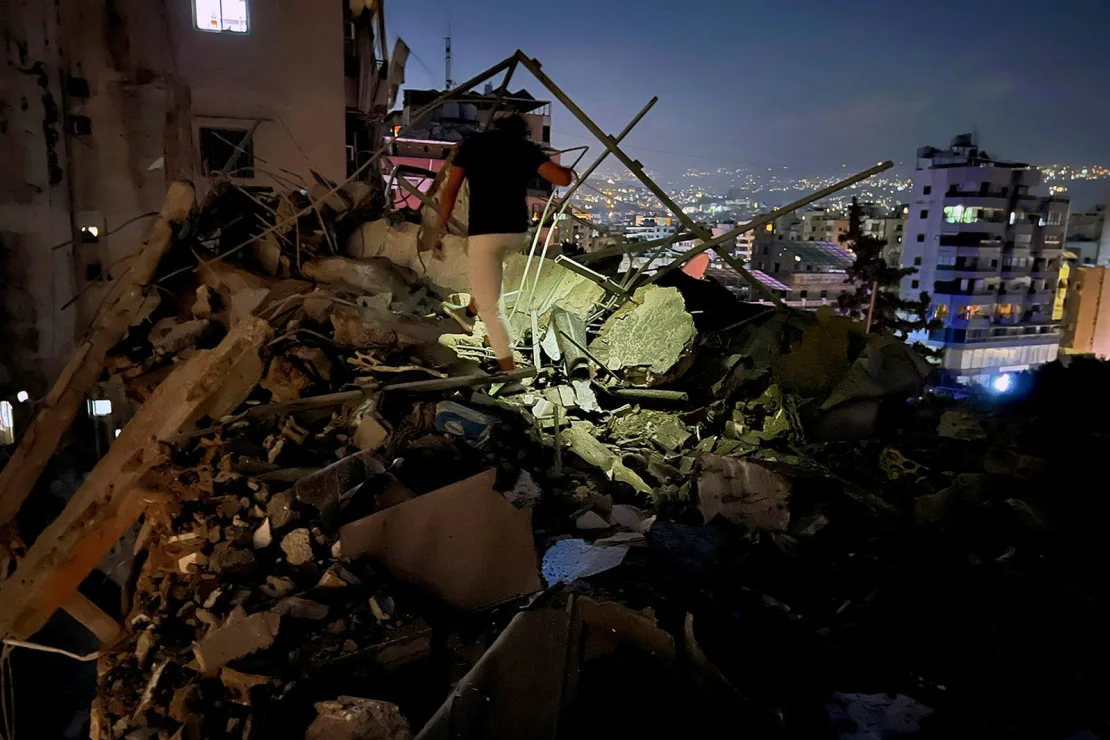BEIRUT, Lebanon — Israel’s military confirmed that an airstrike in Beirut on Tuesday, July 30, 2024, killed the highest-ranking military commander of the terrorist group Hezbollah, Fu’ad Shukr, who was held responsible for a recent deadly attack in the Israeli-occupied Golan Heights.
In a statement, the Israel Defense Forces (IDF) announced, “Israeli Air Force fighter jets eliminated the Hezbollah terrorist organization’s most senior military commander,” Fu’ad Shukr.
While the death of Shukr has yet to be confirmed by Hezbollah or Lebanese authorities, the strike has already led to significant casualties and injuries.
The Lebanese Health Ministry reported that at least three people were killed in the airstrike, including two children and a woman, and 74 others were injured.
The injured, some with severe wounds, have been taken to nearby hospitals, according to earlier reports from the Lebanese state news agency NNA.
Israel’s Defense Minister Yoav Gallant addressed the strike in a social media post, stating, “Hezbollah crossed the red line.”
The Iran-backed group, however, has denied any involvement in the Golan Heights attack three days earlier.
Israel’s national security minister Itamar Ben-Gvir echoed Gallant’s sentiment with a post on his official X account, stating, “Every dog shall have his day.”
The IDF detailed Shukr’s involvement in attacks against Israel, describing him as a senior adviser to Hezbollah chief Hassan Nasrallah and a member of the group’s “highest military body, the Jihad Council.”
The US State Department has offered a $5 million reward for information on Shukr and has designated him a “Specially Designated Global Terrorist.”
A senior Israeli official remarked that the strike was intended to send “a very strong message” but stressed the desire to avoid further escalation.
“We don’t want this to escalate into a wider war and ultimately whether this escalates or not very much depends on how Hezbollah reacts now,” the official told CNN.
Lebanon’s caretaker Prime Minister Najib Mikati condemned the Israeli attack, calling it a clear violation of international law. Mikati described the strike as a “criminal act” that killed and wounded dozens of Lebanese citizens.
Hezbollah MP Ali Ammar stated, “The enemy knows that the resistance will not be quiet about an assault like this. As our people have become accustomed, this blood will not have been shed in vain.”
The Iranian Embassy in Lebanon also denounced the Israeli strike, labeling it “cowardly and sinful Israeli aggression” that claimed the lives of several individuals.
The Iran-backed Houthis and Hamas expressed solidarity with Lebanon and condemned the strike.

Scenes of Chaos
The strike, which targeted a densely populated area in the southern suburbs of Beirut known as a Hezbollah stronghold, resulted in widespread devastation.
Video footage showed emergency responders and bystanders navigating streets filled with rubble and debris.
Multiple vehicles were damaged by falling debris from surrounding buildings.
A CNN journalist on the ground reported scenes of chaos, with ambulances and fire trucks rushing to the site of the strike.
The journalist observed paramedics carrying an injured person on a stretcher. Analysis of images and videos indicated that the southern section of the targeted building suffered extensive damage, with entire concrete slabs reduced to rubble.
Lebanese soldiers have cordoned off the area around the targeted building, which is adjacent to Bahman Hospital. There were no immediate reports of damage to the hospital.
Earlier this week, Israel vowed that Hezbollah would “pay the price” for a rocket attack on a soccer field that killed 12 children and injured 44 people in the town of Majdal Shams.
Israeli and US officials attributed the rocket attack to Hezbollah, although the group denied responsibility.
A new video showed the moment the soccer field was struck, capturing the panic and devastation among children playing nearby. The attack has heightened fears of an all-out war in the region.
US Vice President Kamala Harris affirmed Israel’s right to self-defense while emphasizing the need for a diplomatic solution to end the attacks.
“We still must work on a diplomatic solution to end these attacks, and we will continue to do that work,” she said.
Israeli officials reiterated their stance, stating that while they are prepared for conflict, they prefer to avoid escalating into a regional war.
“As long as the aggression stops and the terrorist threats posed against our citizens are removed, life can go back to normal in [both] Israel and Lebanon,” they said.
Tuesday’s strike marks the largest Israeli escalation with Hezbollah since October 8, following months of tit-for-tat attacks near the Lebanon-Israel border.
The situation remains tense, with the potential for further conflict hanging in the balance.







